New Independent Report Reveals the Need to Bridge the Gap Between Students, Parents, Carers and School Staff to Transform Anti-Bullying Strategies in Schools
Diversity Role Models is proud to launch our ‘Embracing Difference, Ending Bullying, Research and Impact Report’, along with a companion ‘Best Practice Guide’ for primary and secondary teachers, school senior leadership teams (SLT), and school governors.
The ‘Embracing Difference, Ending Bullying’ Research & Impact Report’ follows the culmination of a three-year Department for Education (DfE) funded project. Diversity Role Models have worked with the National Council for Voluntary Organisations (NCVO) throughout this project which they have independently evaluated in this final year.
Key findings from the report
School Leadership vs. Reality:
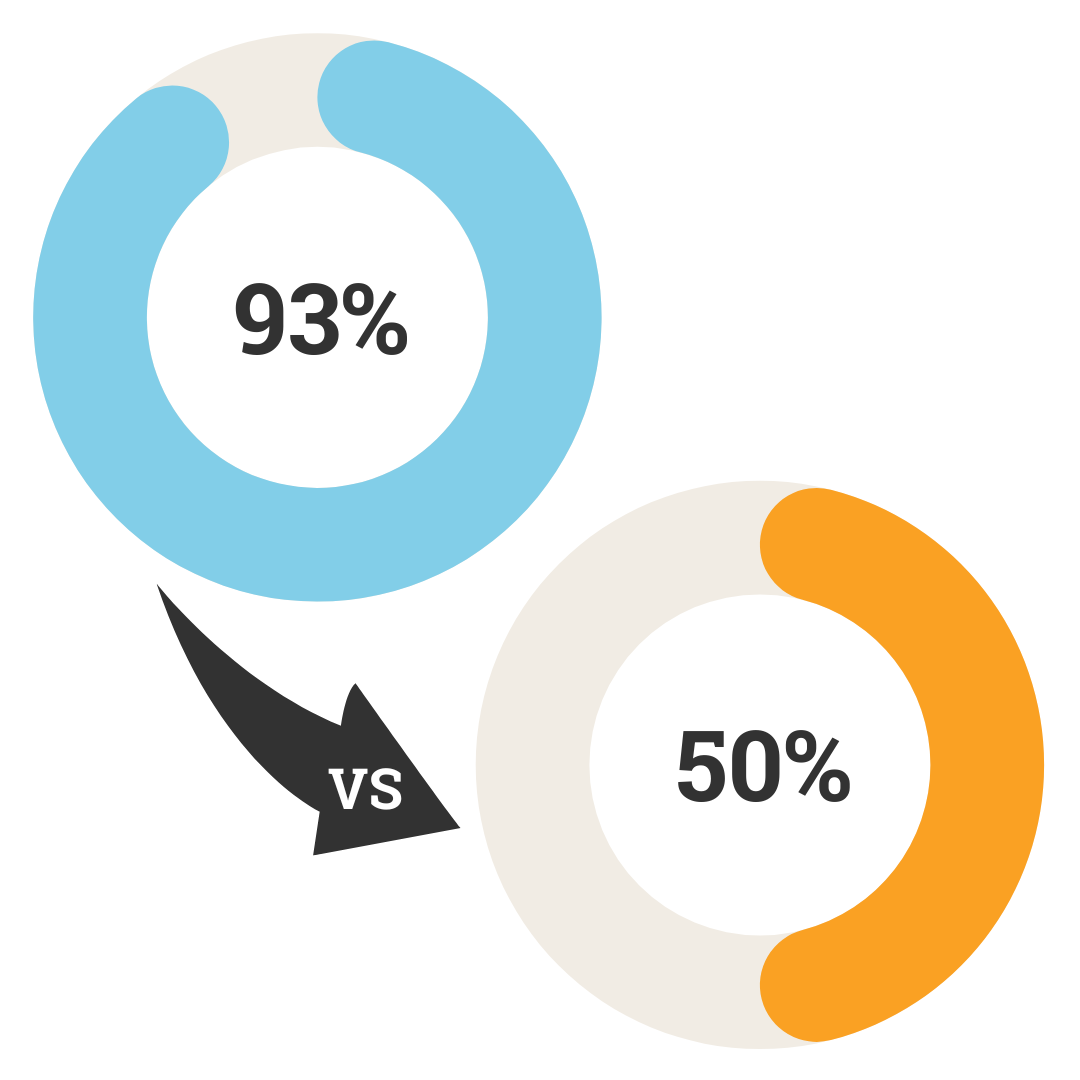
90% of the senior leadership team (SLT) and 93% of school governors believed bullying was rare, while approximately only half of the parents and carers agreed.
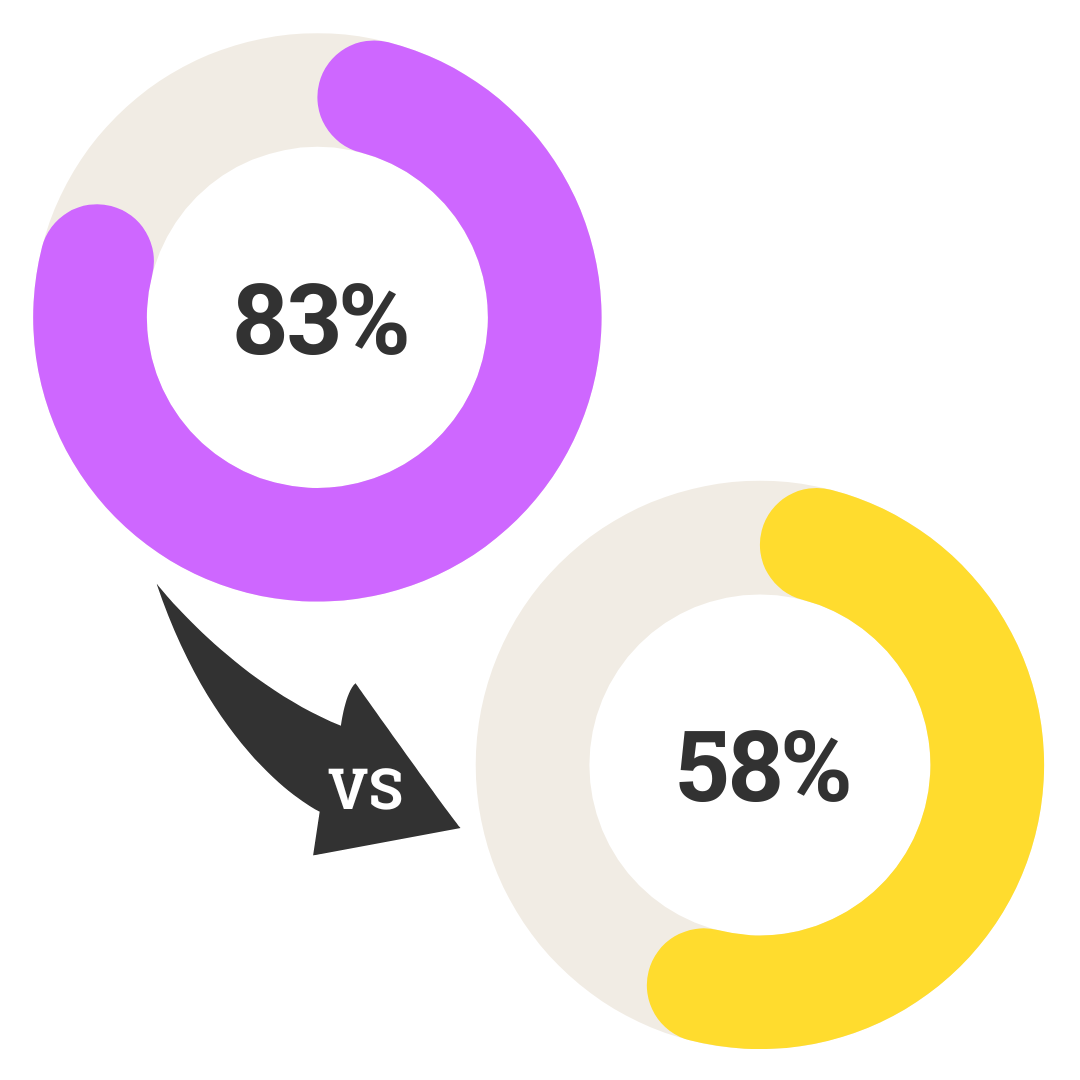
83% of governors believed all students were safe compared to only 58% of primary students who said they felt safe in their schools.
Prevalence of Bullying:
Primary Schools:
- The most reported forms of bullying were related to looks (15%) and perceived differences (14%).
- Only 59% of primary students said their classmates understand that their words can hurt others.
Secondary Schools:
- For secondary students, the most prevalent forms of bullying were based on looks (34%), sexuality (32%), and gender expression – i.e., not behaving like a typical boy or girl (31%)
- Secondary students from marginalised identities and/or those with multiple and intersecting identities consistently reported higher levels of bullying. For example, disabled students were 84% more likely to agree that bullying takes place related to disabilities.
Persistent Issues:
These trends remained consistent over the three years of the DfE funded programme, indicating persistent problems. Social media, parental attitudes, home and friendship challenges, and a lack of empathy and awareness among students were identified as key contributors to bullying.
Lack of Education:
Across the three years of research, students consistently identified disability and LGBTQ+ as the protected characteristics least covered by the school curriculum. Staff also consistently identified LGBTQ+ as the least taught area.
Positive Outcomes:
The evaluation report showed a positive long-term impact of training and workshops, demonstrating that where schools focus on delivering a diverse curriculum, students are less likely to say they were bullied related to protected characteristics.
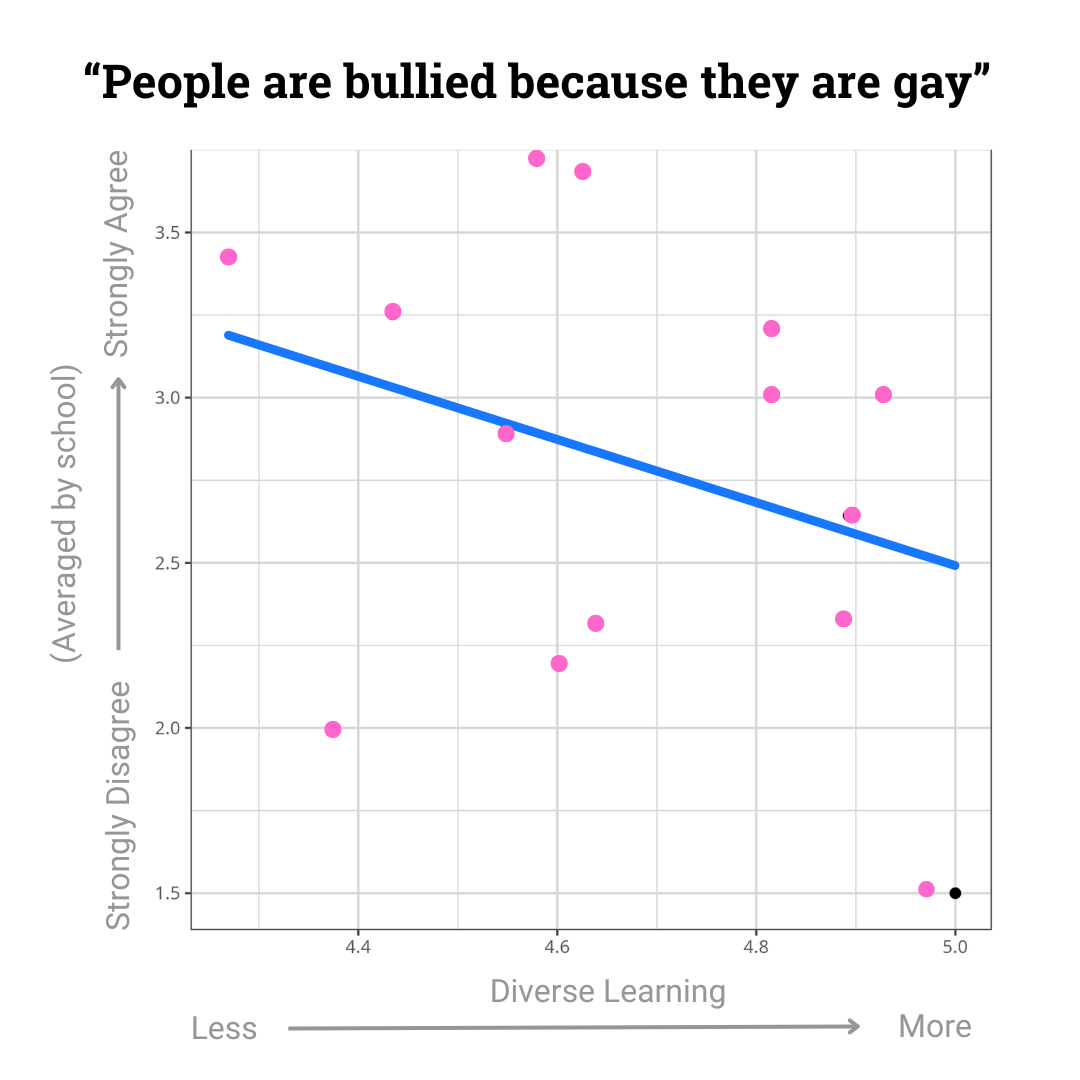
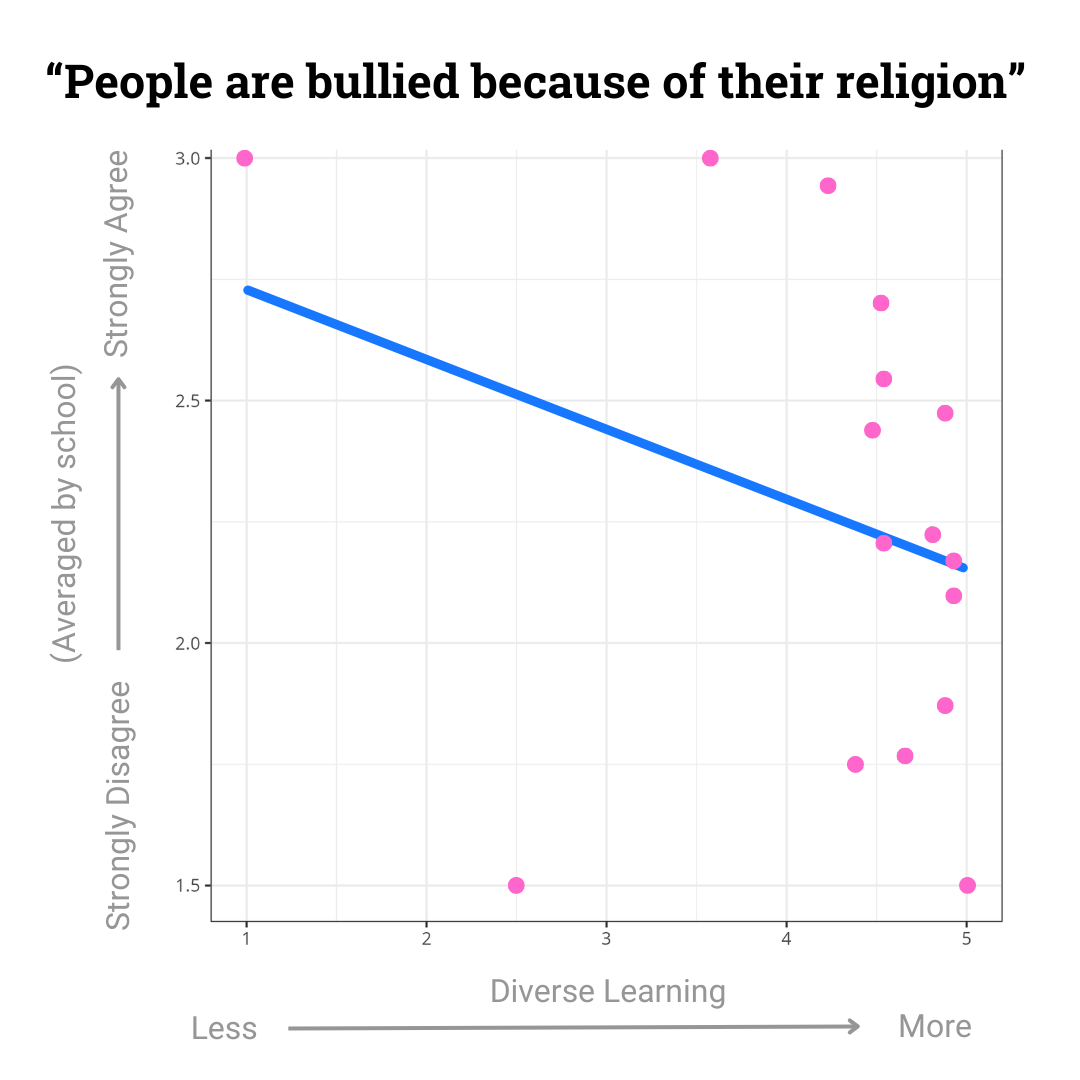
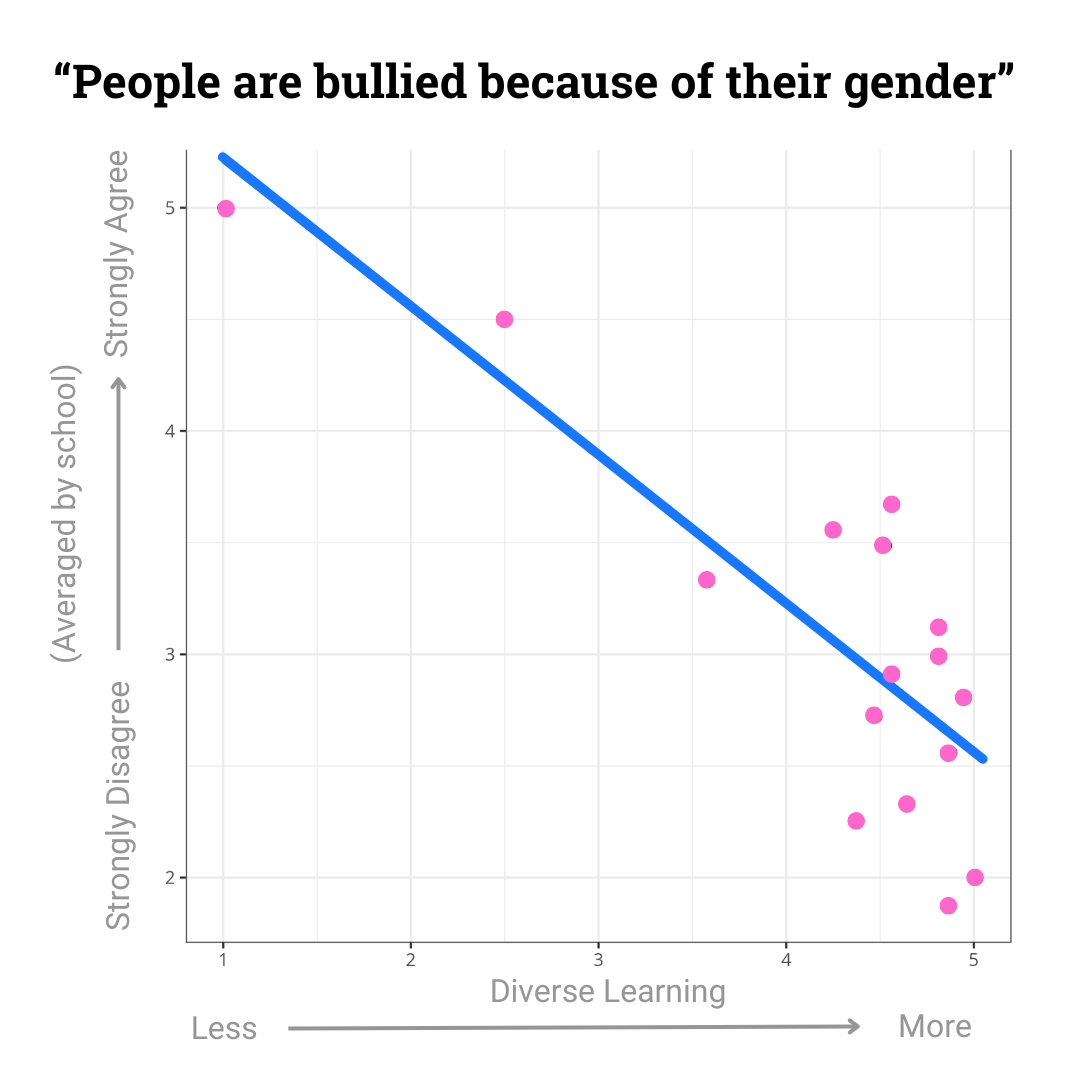
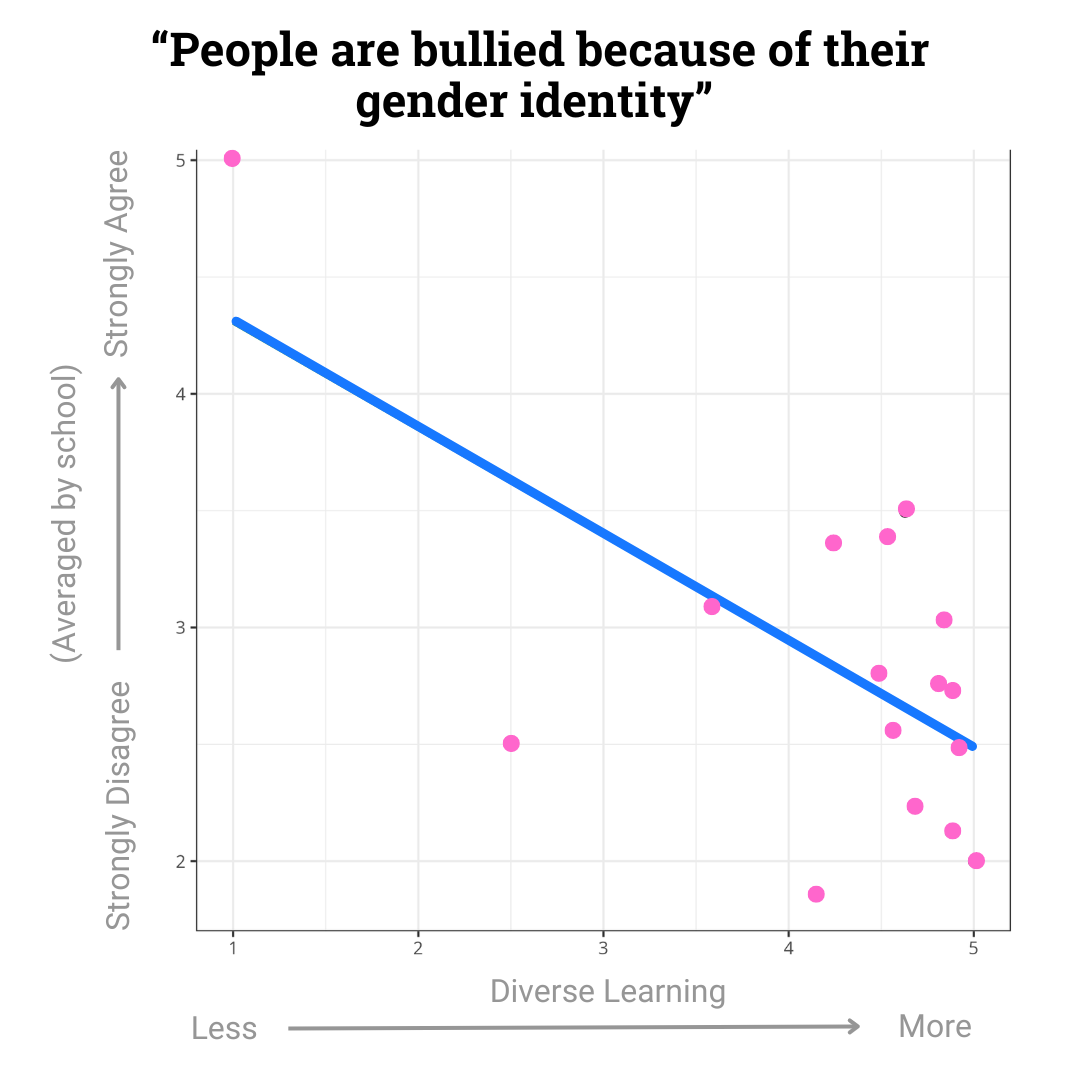
Challenges and Solutions
Bullying is still a major issue, especially when it’s based on looks, perceived differences, and protected characteristics like race, sexuality, and gender identity.
To tackle issues around bullying, we recommend:
- Teaching a diverse and inclusive curriculum: Stories and lessons that celebrate differences can make a big impact.
- Engaging with parents and carers: Their involvement is crucial in creating a supportive environment.
- Implementing robust reporting systems: Schools need effective ways to track and respond to bullying.
- Listening to students: Their voices are essential in shaping effective anti-bullying strategies.
The Power of Workshops
At Diversity Role Models, we believe in the power of storytelling. Our workshops for students and training sessions for staff use real-life stories from our volunteer Role Models to build empathy and understanding.
Schools that embraced a diverse curriculum saw a reduction in bullying. The data from our DfE funded programme shows that students and staff alike felt more confident and equipped to tackle bullying after attending one of our diversity and inclusion workshops or training sessions.
Feedback from Training Participants
Here’s what some of the participants had to say about our DfE funded workshops and training sessions:
“The training deepened our understanding and prompted a revision of our anti-bullying policies. Post-intervention, we saw sustained improvements across the school.”
– Teacher feedback following a Diversity Role Models DfE funded workshop.
“I think that a lot of confidence has come from the trainings. We were talking a lot about upstanders and bystanders. I think there has been a bit of more confidence.”
– Student feedback following a Diversity Role Models DfE funded workshop.
Introducing the Best Practice Guide
Along with our report, we’ve also created a teacher-friendly Best Practice Guide.
Building on the data and insights from Research and Impact Report, the guide offers practical tips and strategies for teachers and educators to create inclusive, bullying-free classroom environments. Condensing the action points into an accessible document, the guide is designed to support teachers in making diversity a core part of school culture. Read more about the Best Practice Guide Here.
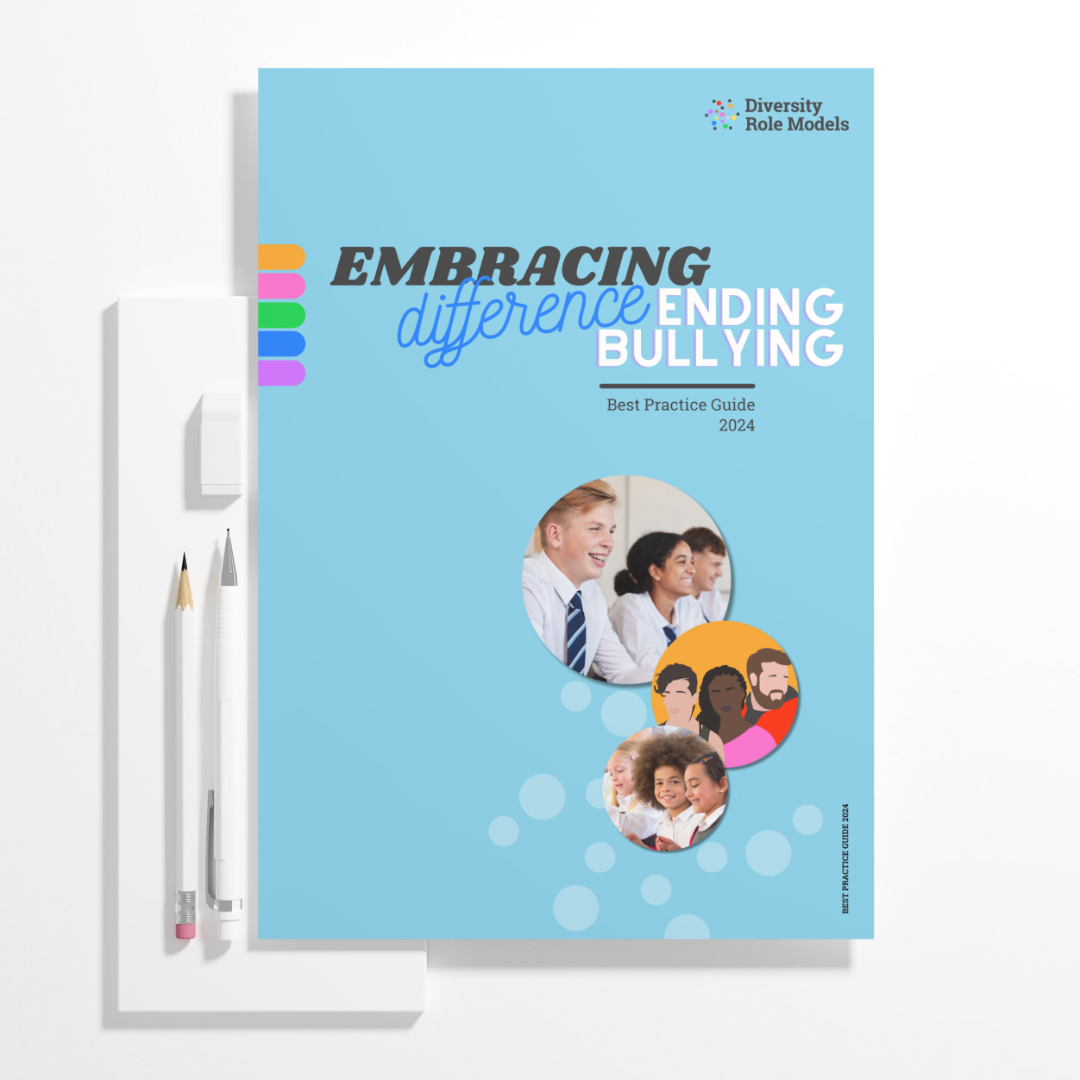
Downloads and More Resources
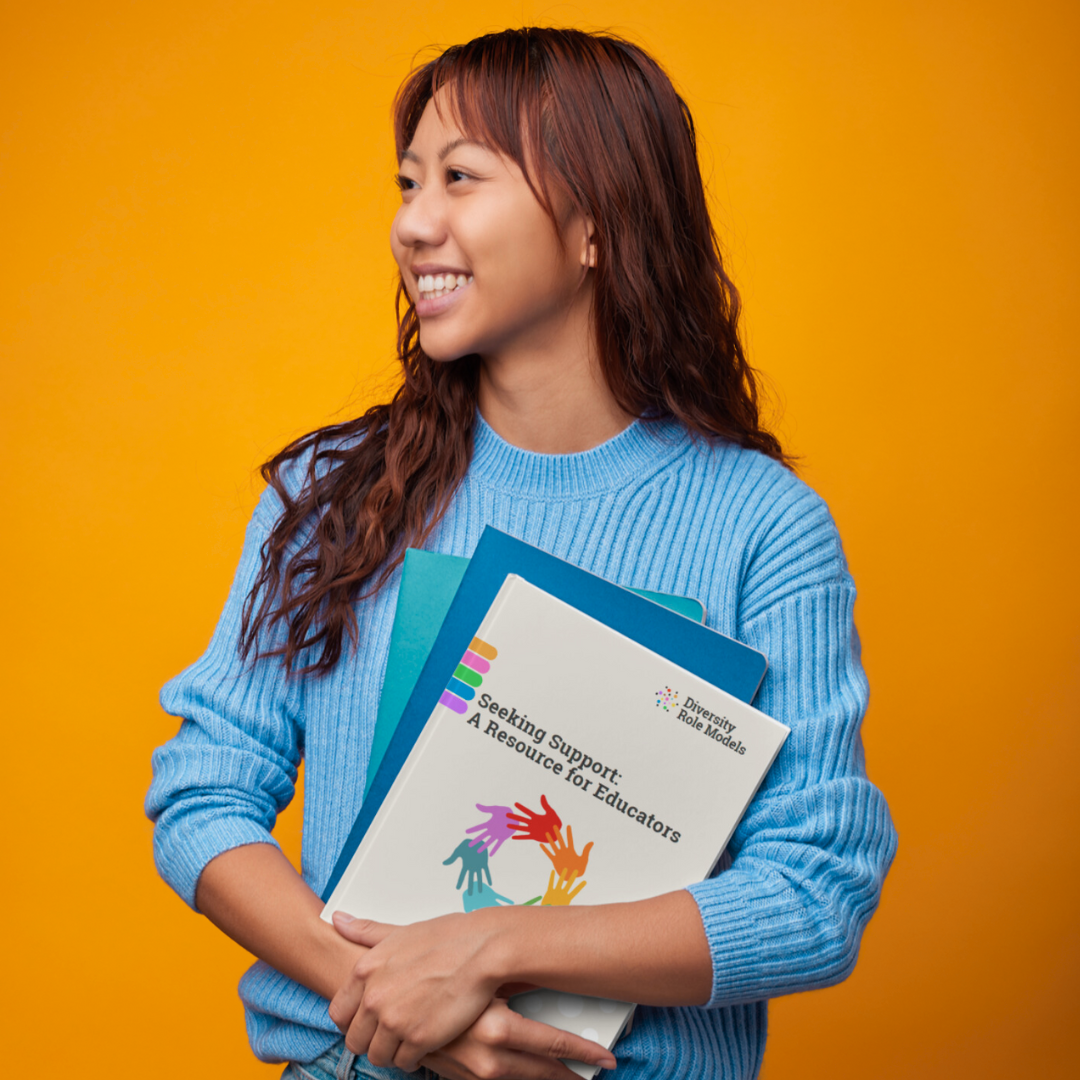
You can also directly download the Research and Impact Report here and the Best Practice Guide here.
You can also access Role Model videos created in support of the DfE project here, along with supporting classroom resources designed to accompany the videos here.
About Diversity Role Models
Diversity Role Models is a dynamic charity with a vision of a world where everyone embraces diversity and can thrive. Since 2011, we’ve worked with over 1,000 schools, reached more than 200,000 young people, and trained over 24,000 school staff members. Our mission is to end bullying based on sexual orientation and gender identity and to promote understanding and acceptance of all individual differences. Through storytelling and interactive workshops, we create inclusive learning environments where every young person feels valued and supported.
Together, let's embrace difference and end bullying, ensuring a brighter, more inclusive future for all young people.
Further Information:
Notes to Editors:
For more information about our launch event on the 11th June 2024, please read our Press Release Here.


